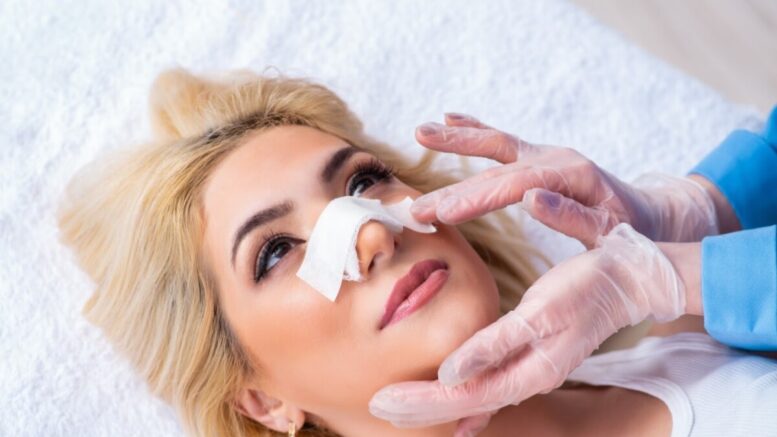Your nose is at the heart of your face. If you’re unhappy with how it looks, it’s hard to avoid, as it’s there every time you look in the mirror. Rhinoplasty helps people change their nose’s appearance and feel more confident with their looks. It’s a long-term way to sculpt your nose and change your face. Rhinoplasty can achieve different looks, and different styles of procedure are available. While you can draw attention away from your nose with makeup, for many, the unhappiness remains. When this happens, people usually consider rhinoplasty.
As your nose is part of your respiratory system, nose surgery is considered a major surgery. However, according to the American Society of Plastic Surgeons, around 350,000 rhinoplasties are performed annually. As such, nose surgery is the most popular plastic surgery in the United States. So, it’s easy to find a plastic surgeon to perform this procedure. Choosing an experienced surgeon is your best bet, as they can help realize your dreams.
Candidates for Rhinoplasty
If you’re unhappy with the size or shape of your nose, you may feel rhinoplasty is your only possible solution. Alternatives to rhinoplasty aren’t as consistent, don’t last as long, and usually lack the precision of nose surgery.
The ideal candidates for rhinoplasty include people who:
- Feel self-conscious about their nose
- Are unhappy with how their nose has changed as they’ve aged
- Have a deformity or abnormality that needs correction
If you meet this criteria, nose surgery could be right for you. It’s essential to realize rhinoplasty can’t make you look perfect. It can change how you feel about your face and instill confidence. But like all plastic surgery, it has limitations. Talking with a surgeon helps you understand how the surgery will change your face.
The underlying factor that unites all rhinoplasty candidates is unhappiness with their noses. If you’re unhappy with your nose, you could benefit from rhinoplasty.
Rhinoplasty — Outcomes and Expectations
It’s great to have a healthy understanding of the outcomes and expectations of rhinoplasty. The results of rhinoplasty surgery vary on an individual basis. A shape that works well for one person won’t suit the face of another. You should always meet with a plastic surgeon so you can gain a clear understanding of the long-term benefits of rhinoplasty. The best surgeons tell patients exactly what to expect from their surgery and recovery. They’re also honest about managing expectations.
Getting the best outcome means working with the best plastic surgeon. You can avoid any future unhappiness by developing the most accurate idea of your surgery results. Patients often need time away from work after nose surgery. This break is to heal and avoid any contact with your post-surgery nose. Your plastic surgeon talks you through your operation and recovery. While classed as a major surgery, risks are low, and modern techniques are accurate.
Rhinoplasty Frequently Asked Questions
Is Rhinoplasty Painful?
Most people report moderate pain in the immediate time after their surgery. Overall, most people report their nose surgery as not causing pain. During the surgery, most patients report feeling numb in the roof of their mouth, teeth, and nose. For around a week after the surgery, most people experience a blocked nose. It’s comparable to a mild head cold and should feel better in a week. It’s a common misunderstanding that bruising to the nose and face is unavoidable. The reality is that most people will suffer zero to minimal facial bruising.
How Long Is Rhinoplasty Recovery?
Rhinoplasty recovery is a long process during which you should look after your nose and skin. Some people may notice their nasal skin is uncomfortable or dry after surgery. This skin irritation is expected and can last for a few months. You should also avoid tanning your nose for a few months to give your skin the time it needs to recover from rhinoplasty.
How Can I Speed Up My Rhinoplasty Recovery?
The truth is, there’s no way to speed up your recovery from nose surgery. Though, there are many things you can do to ensure there are no problems along the way. The key to recovery is listening to your doctor and observing the signs your body gives you. Avoid exercise, don’t blow your nose for at least six weeks after your surgery, and watch out for poor skin. If you’re struggling with a blocked nose, your surgeon can help with a nasal spray.
